
The University of Edinburgh, founded in 1582, is the sixth oldest university in the English-speaking world and one of Scotland's ancient universities. Consistently ranked one of the top 50 universities in the world, the University was recently ranked 22 in the 2024 QS World University rankings. One of Britain’s leading research universities, Edinburgh is also ranked 4 in the UK for research power, based on the 2021 Research Excellence Framework (REF) by Times Higher Education. The College of Science and Engineering (CSE) is one of the three academic Colleges at the University and, with nearly 2,900 staff and 10,800 students is one of the largest science and engineering groupings in the UK. It consists of seven academic schools (Biological Sciences, Chemistry, Engineering, GeoSciences, Informatics, Mathematics and Physics & Astronomy) and two Centres of Excellence (EPCC and The Bayes Centre). In the most recent (2021) REF results, CSE was classed as world-leading in terms of the originality, significance and rigour of its research – with 96% of research outputs classed as either world-leading or internationally excellent.
UEDIN laboratory
McKeown Lab (School of Chemistry University of Edinburgh)
The McKeown Group occupies 1,300 square feet of the recently refurbished Archibald Scott Cooper Laboratory within the Joseph Black Building of the School of Chemistry. The Group has the use of 12 large fume hoods each opposite a large work bench and several side rooms for housing instrument. Office space for 15 researchers is located adjacent to the laboratory. All graduate students and postdoctoral researchers in the McKeown Group are each provided with computers for office and research work by the School of Chemistry. In addition, the synthesis laboratory has several computers for instrument operation and data collection/analysis.
Equipment: The McKeown Group’s laboratory is well equipped for monomer synthesis and for performing a variety of polymerization reactions. Specialised reactors for performing reactions mediated by microwaves, high pressures or mechano-chemistry are available. Importantly, the McKeown Group possesses a computer-controlled Radleys large-scale reactor (up to 5 litre) for the scale-up of monomer and polymer synthesis (Figure).
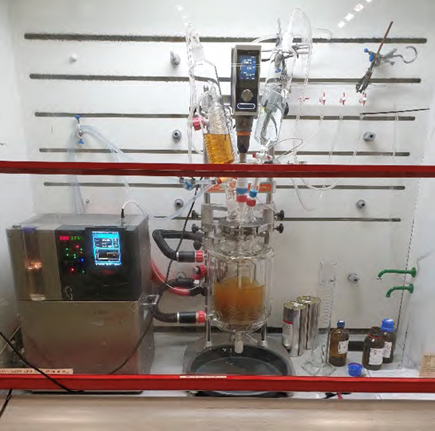
Figure. Radleys large-scale reactor
Multiple precision balances (Mettler Toledo) and ovens (both vacuum and convection) are available for drying compounds and precipitated polymer. Equipment is available for polymer film fabrication at precise and uniform thickness by solution casting. Polymer characterization equipment includes a Thermal Analysis SDT Q600 TA instrument, two gel permeation chromatography GPC MAX 1000 systems equipped with Viscotek CLM3012 LT 5000L columns and both refractive index (VE3580) and light scattering detectors. Intrinsic microporosity in polymers is measured using a Quantachrome Quadrasorb evo surface area analyser using both N2 and CO2 adsorption.
Other Resources: The McKeown Group has full access to shared (on a fee-basis) user facilities within the School of Chemistry including NMR spectrometers, MS suite, ICP equipment and single crystal and powder XRD facilities
MC. Ferrari Lab (School of Engineering University of Edinburgh)
The Membrane group laboratories in the School of Engineering at the University of Edinburgh are equipped for the preparation and testing of polymeric and composite membranes.
Thick membranes are prepared by solution casting while thin film composites are formed using the kiss coating technique.
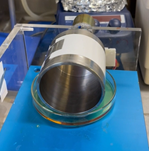
Several custom-built systems designed for testing gas transport in novel gas separation membranes are available:
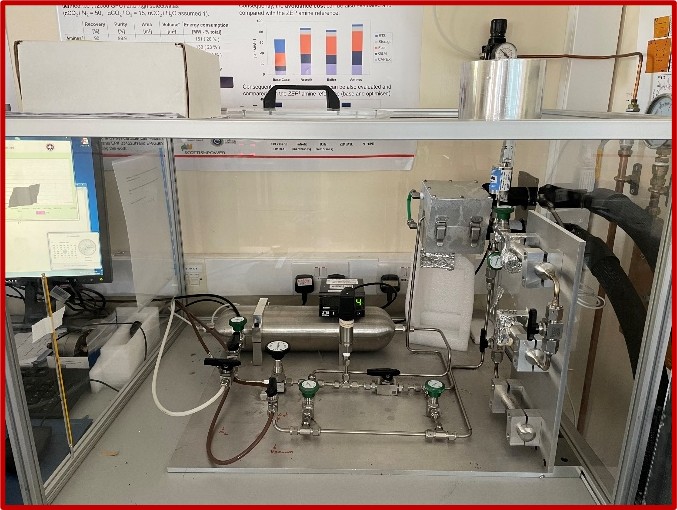 Low temperature time-lag permeation system: single gas measurements up to 10 bar and in a temperature range between -20 °C and 90 °C.
Low temperature time-lag permeation system: single gas measurements up to 10 bar and in a temperature range between -20 °C and 90 °C.
Gas tested: He, N2, CO2.
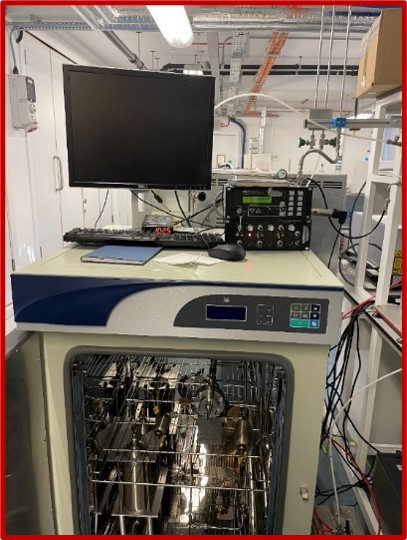 High temperature time-lag permeation system: single gas measurements up to 20 bar and 200 °C. Gas tested: He, H2, N2, CO2, CH4, C2H6, C2H4.
High temperature time-lag permeation system: single gas measurements up to 20 bar and 200 °C. Gas tested: He, H2, N2, CO2, CH4, C2H6, C2H4.
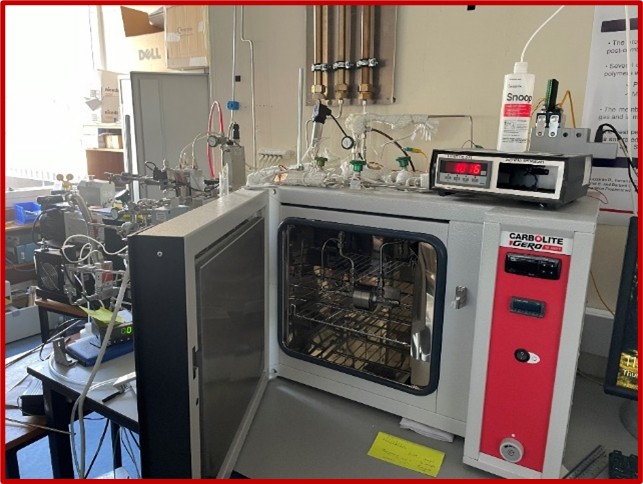 Mixed-gas constant volume permeation system: mixed gas measurements up to 10 bar and 200 °C, with humid streams.
Mixed-gas constant volume permeation system: mixed gas measurements up to 10 bar and 200 °C, with humid streams.
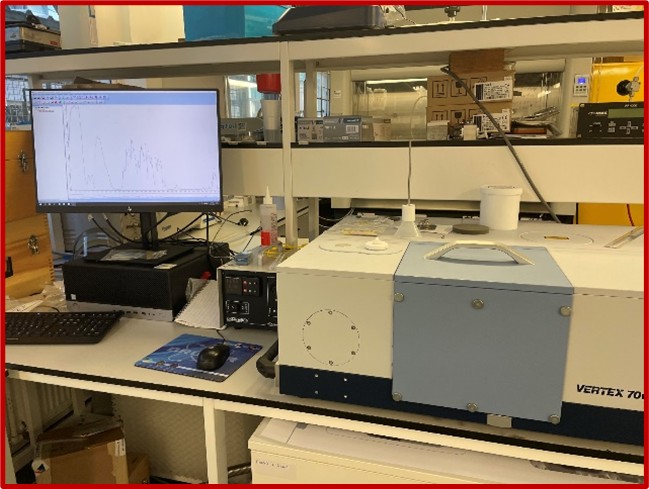 FTIR spectrometer with environmental cells for in-situ diffusion measurement of mixed gases up to 3 bar and 100 °C.
FTIR spectrometer with environmental cells for in-situ diffusion measurement of mixed gases up to 3 bar and 100 °C.
UEDIN personnel

Neil McKeown, FRSC, FRSE, is the Crawford Tercentenary Chair of Chemistry at the UoE. His expertise is in the synthesis of organic materials focusing on the preparation of porous materials – both organic molecular crystals and amorphous polymers. He is best known as the inventor of Polymers of Intrinsic Microporosity (PIMs), which combine microporosity with solution processability and are of global interest for use as materials for making separation membranes and adsorbents. He was elected as a Fellow of the Royal Society of Edinburgh in 2017. He is a Fellow of the Royal Society of Chemistry and was awarded their 2008 Beilby Medal, 2017 Tilden Prize and the Stefanie L. Kwolek Team Award for Materials Chemistry in 2023. He has published 250+ papers:
https://scholar.google.co.uk/citations?hl=en&user=PrKcCcQAAAAJ&view_op=list_works&sortby=pubdate

Maria-Chiara Ferrari is Professor of Membrane Separations in the School of Engineering at the University of Edinburgh. She graduated with a PhD in Chemical Engineering from the University of Bologna in 2009. After a period at the University of Texas at Austin, she moved to the University of Edinburgh in 2010, where she became Professor in 2020. Prof. Ferrari leads the research on membranes for carbon capture and energy applications, looking at the development of membranes and processes with both experimental and modelling tools. Until 2023, she was one of the 10 Directors of the SCCS (Scottish Carbon Capture and Storage centre). She was on the council of the European Membrane Society from 2017 till 2020. Currently she is the chair of IChemE Fluid Separation Special Interest Group.

Dr. Kamran Ghasemzadeh, who holds a Ph.D. in Chemical Engineering, is a highly accomplished researcher and author. He has published 70 peerreviewed papers, 8 books, and 40 book chapters with prestigious international publishers. His primary research expertise is in the areas of membranes and membrane reactors, where his work has significantly advanced both knowledge and practical applications in the field of chemical engineering. Since 2015, Dr. Ghasemzadeh served as an Associate Professor in the Department of Chemical Engineering at Urmia University of Technology in Iran. Simultaneously, between August 2022 and 2024, he held the position of Senior Research Associate at the Manchester University, where he contributed to several cutting-edge research projects. Currently, Dr. Ghasemzadeh is a Senior Research Associate at the Institute for Materials and Process at the University of Edinburgh, where his research continues to drive innovation in membrane technology in the EIC DAM4CO₂ project.

Dr. John Tobin , obtained his PhD in polymer and organic chemistry at Heriot-Watt University in 2018, focusing on the development of conjugated porous polymers as heterogeneous photocatalysts under continuous flow conditions. Following this, he was involved in several industrial projects funded through OGIC (Oil & Gas Innovation Centre) to develop new functional materials to help improve the health, safety, and environmental protections required on deep sea oil rigs. In June 2019, John joined the McKeown group in the School of Chemistry at University of Edinburgh to continue development of microporous polymer membranes for gas separation applications. This work has focused on the synthesis of novel monomers and polymers, characterisation, and determining routes for upscaling procedures. Since August 2024, he has continued and expanded this work through "Double Active Membranes for a Sustainable CO₂ Cycle" (DAM4CO₂), supervised by Prof. Neil McKeown.
